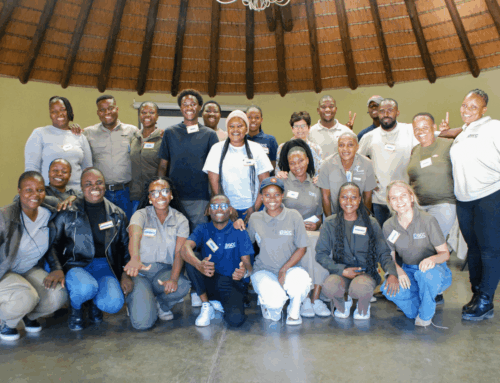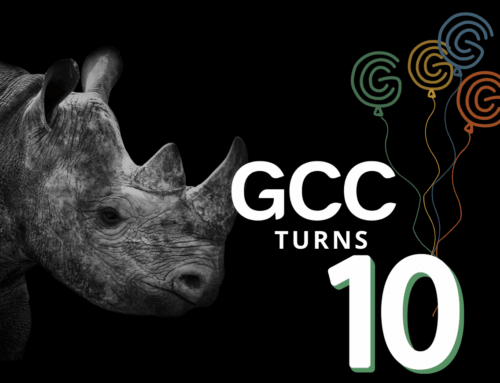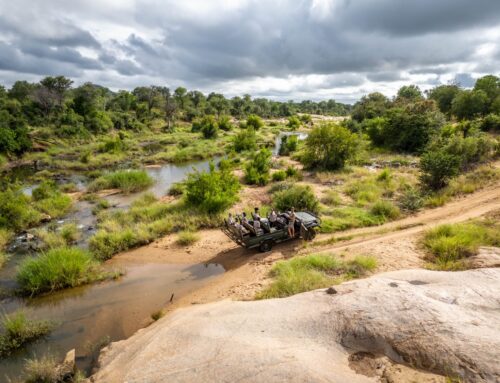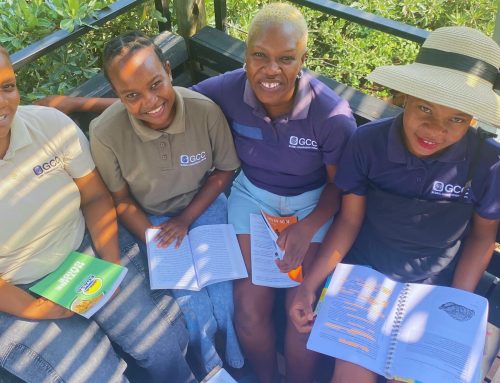Mbhoni Mzamani joins GCC as Producer. He talks about his experience on the Field Ranger Scholarship Program, his new role at GCC promoting careers in conservation to youngsters in the local communities, and the importance of being passionate about wildlife and the environment at large in conservation.
When did you first hear about the work of GCC?
I was looking for employment and a friend sent me a link that directed me to the application form for the field ranger scholarship. So, I applied for the scholarship and in preparation for the interview, I looked at the GCC website and read all about the organization to see what it was about and what was their mission. That is how I got to learn about GCC.
How was the interview and the three-day physical evaluation to get a place in the scholarship program?
It was quite tough. The interview was not difficult; I was honest and open to the questions which made it simple. As for the training, that was intense. It was much tougher than I had expected, but I had the will. It’s within me that whenever I start something, I have to bring it to completion! So, when I applied for this scholarship, this gave me courage, because I said to myself “you have started this so now you have to continue until the end”.
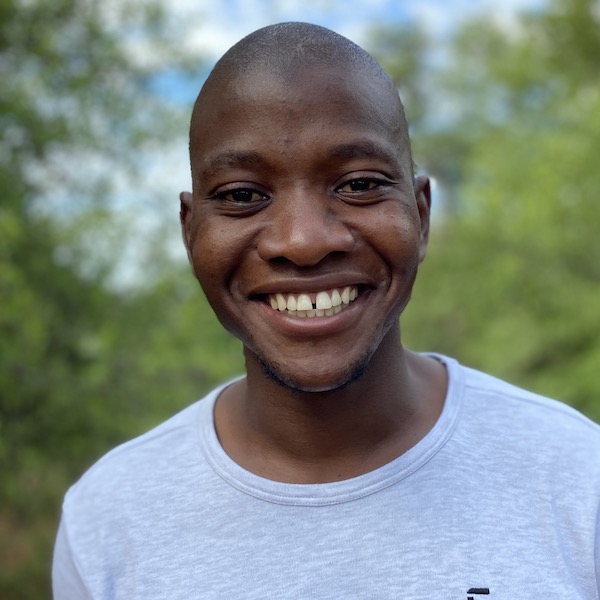
How did you prepare?
I got tips from a friend who went for military training. She gave me some of the training advice and shared activities that she had done during her training, like running for 2.4km in 12 minutes, 50 pushups in 2 minutes, stuff like that. So those basic tips prepared me for the training, physically and also mentally. The advices from her gave me a bit of an idea of what I was going to encounter and when I got there it is was just like she said, and more actually!
How did you find the sleep-deprivation part of the training?
That was one of the toughest activities that we did. From the middle of the night a whistle would be blown up to two times, you would have up to 10 seconds to be dressed, with your 28 kg bag on, and be on the parade ground. So, I would sleep with my shoes on and I would put my bag in a manner that would allow me to just sit down and put it on. This exercise made sleeping a luxury because you would be partially conscious the whole night waiting to hear the next whistle blow to can make it to the parade ground on time. It was quite challenging at first, but I am grateful for the guy I shared the room with because we helped each other despite the fact that we were competing. We pushed one another really hard which helped us and, in the end, we were both deemed competent, which was great.
Have you always been interested in animal conservation or is this something that came later in life?
I have always been interested in conservation. I remember I was asked this question during the interview. They asked me “When did you first realize that you had a love for nature?” and it took me back to when I was young. I remember I had doves which I got from a relative, which nested in the ceiling of their house. I relocated them to my place where I created a home for them where I fed them and kept them warm. This was in 2006 while I was in grade 6. Later I had a puppy which I got from my aunt. This made me to be in conflict with my family because of their hatred for dogs but I still insisted to keep the puppy and made the whole family fall in love with it, took care of it until its last day on earth. As I proceeded to the high school level, I followed the science stream, and one of the subjects was life sciences/biology, of which I enjoyed the environmental section (paper 2) of that subject. And then, I went to university where I studied environmental sciences which broadened my knowledge on environmental systems at large.
I have always been in love with nature. I am always looking for opportunities to take care of something like a pet and stuff like that. Now, being exposed to conservation is something that I really enjoy and do wholeheartedly with passion. I had options to go and work as an environmental officer and wastewater treatment plant operations manager, but could not because my passion lies in conservation and taking care of our wildlife.
What are you working on with GCC?
Right now, I am working with GCC on a project that aims to expose all the different careers that lie within conservation. When we talk about conservation, a lot of people think of it as being about field rangers, and that’s not the only career that exists in conservation, there are quite a lot of different careers. So, I am working this project so as to expose all these different careers in conservation to the local communities along the border of the Kruger National Park and other protected area. I will connect with people who are within these different careers in conservation. One of my duties will be to interview and find out how they managed to reach the position they are in, the challenges they encountered, and what advice they can give to people interested in following in their footsteps. It is going to be very exciting.
Could you give me a few examples of some of the other careers that are out there in conservation?
We have a lodge manager who basically manages lodges in protected areas. This is basically one of the main sources of income for most protected areas. This is so through the visitors who visits to experience wildlife within an area, so you need to have knowledge of the animals in order to be able to engage with the clients.
There are pilots. Pilots are our eyes from the skies. They really assist in anti-poaching activities and game capture. Because of them, we are able to cover a large surface area and help the guys on the ground. We need guys to fly helicopters and planes to help out with this activities.
We also have veterinary scientists, who take care of the animals, controlling disease, making sure that the animals are in good shape through data collection, checking that their health condition are in order and prevention of the spread of diseases.
We also have ecologists who check the capacity of the land. They are responsible for noting the number of animals and the amount of food available to them within a particular protected area to ensure that the land is not degraded, having a wider lens on soil erosion and things like that too.
What are you most exciting about with your new role at GCC?
I am excited about meeting people in different careers because even if I know about the careers, but have never met people within those careers, so it is a chance for personal development. I am mostly excited about sharing this information that I believe will have a great and positive impact on the youngsters in the local communities, especially that I am someone whom they can relate to. Their lives will change and their perspectives of wildlife and conservation will shift or be redefined and this is something that really excites me.
Do you have a favorite animal?
I love elephants. I love elephants because I believe they are smart and also the elephant is a symbol of our family. I worked in a reserve as a field ranger intern and we had challenges with elephants breaking and crossing the fence. We noticed that the elephants would test the fence for electricity every now and then and if they found electricity, they would leave. But they would come back the next day to the very same place to check, and they would continue to come back, maybe four or five times, and the day there was no electricity, they would break the fence and leave the reserve. Their recall memory is amazing and their curiosity amazes me. They behave similarly to humans. The only thing they can’t do is to talk as we do, but most of the behaviors they portray are the very same behavior as most human beings have. They are just beautiful, magnificent animals and so easy to love.
If there was a young person interested in following in your footsteps, what advice would you give them to encourage them?
Conservation is more about love, it is more about passion, it is more about giving back to nature, and acknowledging that the resources that we use today should be used in a manner that they can be used again by future generations. As the field ranger creed quote says, “ I know that I have borrowed this earth from my children, and that I have not inherited it from my forefathers”, meaning that the way we use our resources today should be in a manner that the future generations can also use them. In order for a young person to appreciate that, they need to be passionate about the environment, passionate about saving wildlife. They have to love it. It needs love and passion first before any other thing.

